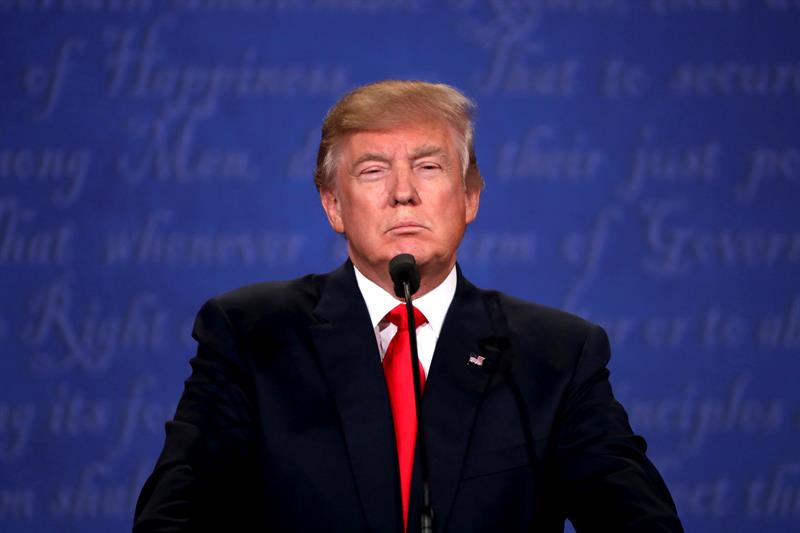While he was on campaign, Donald Trump made concerning statements regarding topics of scientific concern such as global warming and scientific research funding.
What’s more is that Trump’s running mate and current Indiana Governor Mike Pence has a strictly Christian conservative agenda when it comes to scientific research. Pence has already announced to be against stem cell research and abortion rights for women. Under the Obama administration, the United States managed to serve as a beacon of leadership and support for climate conservation, mainly by seeking to implement widespread green technologies and leading other countries to sign the Paris Agreement.

Trump: Climate change is a hoax
Because 2015 was noted as the hottest year on record, a landmark that could be surpassed by the end of the year, global warming has gained momentum as a topic of concern in world politics. Until global leaders do not realize this, the planet will be condemned to heat up until coastal cities sink under ocean waters.
On the other hand, President-elect Donald J. Trump does not believe any of this nonsense, as he claims that “the concept of global warming was created by and for the Chinese to make U.S. manufacturing non-competitive.”
Trump’s presidential campaign lacked scientific credibility and intentionality, which has concerned American scientists with the possibility that the new president will not have the same priorities in research and public health as his predecessor. This can translate to a simple measure: scientific research will cease to receive funding.
Most academic research facilities depend on federal funds contributed by the National Science Foundation, the National Institutes of Health, and many others. Trump dissed the latter and openly denies the existence of climate change.
Although Trump has not disclosed much information about his stance on scientific research funding, what is clear is that he intends on reversing Obama’s decisions by investing more in fossil fuels, probably in the form of fracking for natural gas. Apparently, the main method of action the 45th President of the United States has at his disposal is investing in infrastructure, an area that he knows well.
Space exploration and Pence’s Christian conservative views
When it comes to changes in health policy, Trump has already suggested that he could pick Florida Governor Rick Scott or Ben Carson for Health and Human Services secretary. Both of these potential candidates share a stance against women’s rights for abortion.
Mike Pence signed a bill earlier this year to restrict women’s right to abort when the fetus shows a genetic malformation. Even if this does not mean that abortion will be banned in the United States after Donald Trump takes office, it shows how the Trump administration will tackle the most controversial issues that were tacitly touched by Obama.

Pence will be Trump’s closest adviser, and seeing that he is a creationist in public as he avoided questions concerning evolution in a 2009 interview with Chris Matthews, any radical conservationist measure that appeared far-fetched during Obama’s terms as president could become a reality.
Politicians tend to avoid unwanted topics, but not all of them disregard scientific research just like Trump has. But in reality, Donald Trump has not been explicit on his objectives for the U.S.’s new direction on scientific research other than encouraging “innovation in the areas of space exploration and investment in research and development across the broad landscape of academia.”
The president-elect has not openly said that he will cut funding for scientific research, but he did acknowledge the necessity of balancing the federal budget and seek new priorities for legislation.
“In a time of limited resources, one must ensure that the nation is getting the greatest bang for the buck. We cannot simply throw money at these institutions and assume that the nation will be well served,” stated Donald Trump referring to public health research funding.
The Trump campaign recruited former congressman Robert Walker to develop its space exploration agenda. Walker explained nine aspects of his plans for space policy. First, there’s the intention and commitment of leading the U.S. to become a leader in space affairs, which would require better technology, personnel security, and jobs. He also explained that the National Space Council would be reformed to oversee space efforts and assure maximum efficiency.
Another point suggests that NASA should look into “deep space achievements,” moving away from Earth-based research. Walker stressed that this could mean a cut in funding for NASA, as the National Oceanic and Atmospheric Administration would share some of its workloads.
In the final points, Walker explains that the U.S. should look into military applications for space technologies and leave low Earth orbit operations to the commercial sector, while also looking to extend the lifetime of the International Space Station.
Trump’s adviser on space exploration also commented that the moon should be taken advantage of, seeing that currently, NASA has no plans for sending humans back to the moon.
“I would describe what we came up with in four terms: it’s visionary, it’s disruptive, it’s coordinating and it’s resilient,” stated Robert Walker regarding the Trump presidency’s plans for space exploration.
Source: Space News Motherboard
